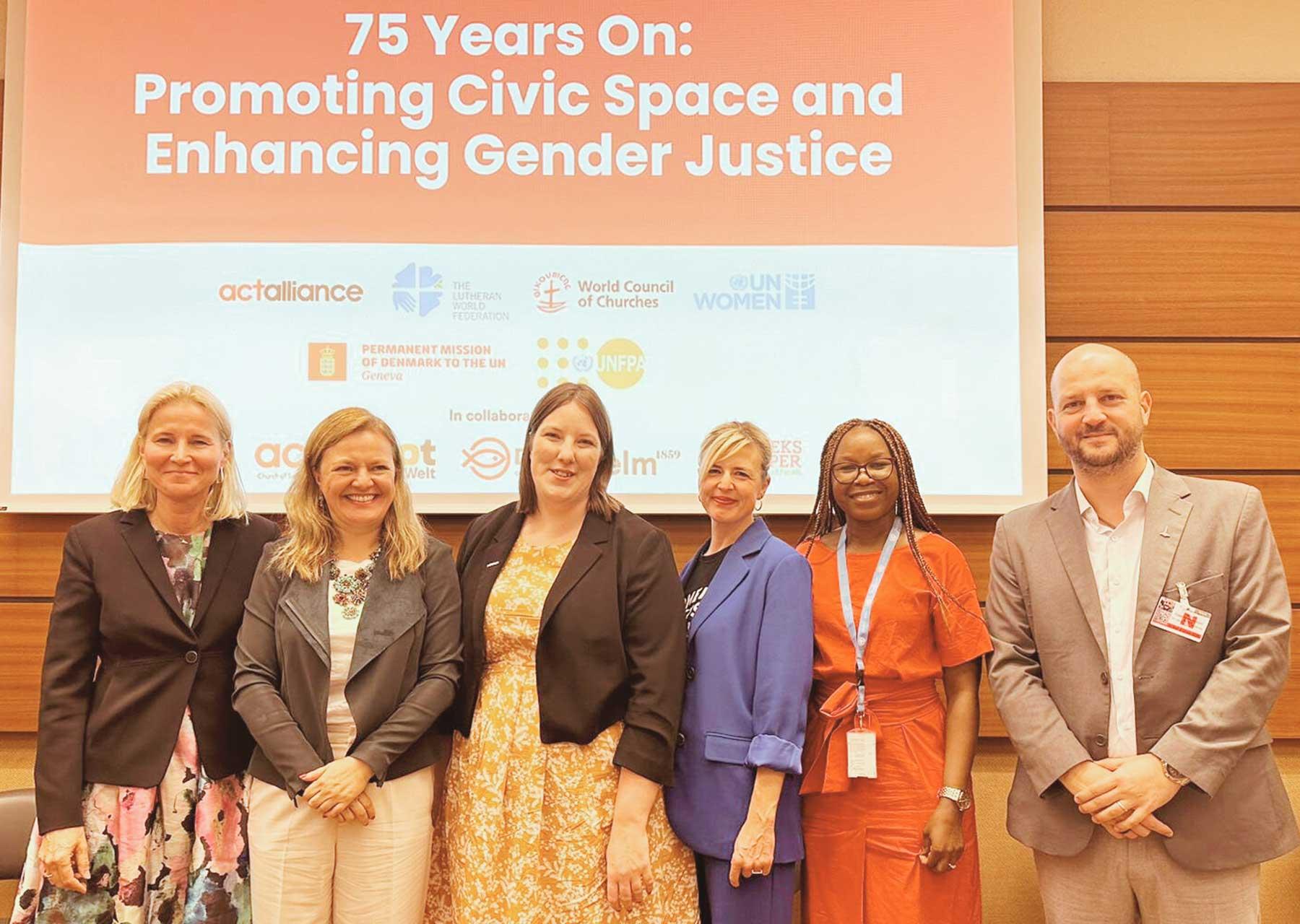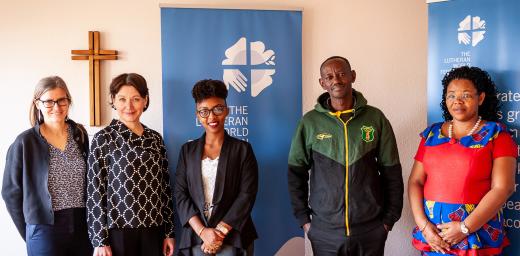LWF joins partners at Human Rights Council to showcase responses to pushback against women’s human rights defenders
(LWI) - Three quarters of a century on from the adoption of the Universal Declaration of Human Rights by the United Nations General Assembly, faith-based organizations are speaking out about the need for new and creative ways of protecting human rights defenders, in particular those working for gender justice in countries across the globe.
During the 54th session of the Human Rights Council, the Lutheran World Federation (LWF) partnered with the World Council of Churches, ACT Alliance, DanChurchAid, the United Nations Population Fund, U.N. Women and the Danish government to host a side event highlighting ways in which faith-based organizations are responding to the challenge of shrinking spaces for human rights defenders.
LWF’s Advocacy Officer for Gender Justice, Sikhonzile Ndlovu said “the shrinking civic space requires a total shift in the way we work, moving away from traditional ways of engaging to identify alternative spaces for advocacy.” This includes making better use of new opportunities offered by digital technology, strengthening capacity through training, peer learning and sharing of resources, as well as building better relationships with governments and national, regional or local human rights institutions.
Challenges in online spaces
Karina Pultz, a senior human rights advisor at DanChurchAid, noted that women also face significant challenges in online spaces and, according to a 2022 report from the organization, are “27 times more targeted by online harassment than men.” In compiling the report, she said it was “overwhelming to hear the stories about sexist comments and deep fakes, aimed at humiliating women, as well as the rape and death threats, aimed at scaring them from their political engagement.”
Rev. Dr Felipe Koch Butelli, a pastor from the Evangelical Church of the Lutheran Confession in Brazil (IELCB), spoke about the important progress his country made during the years prior to 2014 in areas including “equality policies, legislation against gender-based violence and debates on sexual reproductive health.” Following the example of the LWF, he said, the Lutheran Diakonia Foundation of the IELCB developed and launched its gender justice policy in 2014, “laying the groundwork for the church” to do the same last year.
But over the past decade, he said, religion has been “instrumentalized” to defend the “misogynistic political and ideological stance” of government leaders, justifying a major setback in the work for women’s rights. “Public investment in policies for women was zero,” he said, and “the symbolic and discursive violence” of public officials “infected the population, influencing and naturalizing all types of violence against women again.”
Brazilian society is traumatized by the resurgence of violence in all its forms
Rev. Dr Felipe Koch Butelli from the Evangelical Church of the Lutheran Confession in Brazil
In the current context, Butelli said, “Brazilian society is traumatized by the resurgence of violence in all its forms.” The country needs “processes of reconciliation and reconstruction of family, community and social relations,” he continued, to “rebuild the perception of the dignity of all people, of their rights to a dignified and peaceful life.”
Churches can play a key role in creating “spaces for dialogue,” he added, helping to “recover agendas that were abandoned and rebuild progress that was interrupted.” Rebuilding relationships “requires conversation, trust and bringing people together, without fear of facing difficult topics," he insisted.
Speaking on behalf of UN Women at the 11 October event, Adriana Quinones, head of human rights and development at the Geneva office, insisted that “protecting civic space and gender justice are not separate ideas, but rather two sides of the same coin.” She concluded: “Safeguarding civic space is essential for gender justice."




